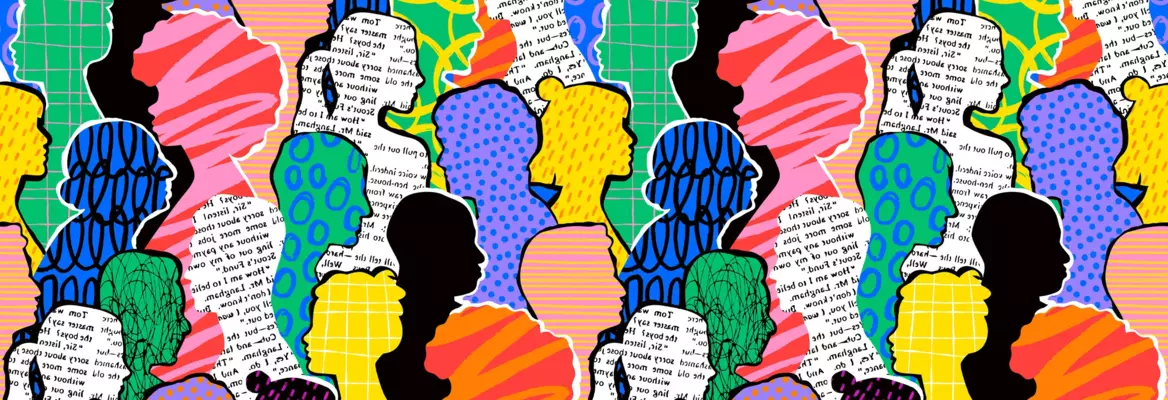In an era where poetry is often dismissed as inaccessible and disconnected from everyday life, John Gibson challenges these assumptions. He argues that the enigmatic nature of poetry is not so different to that of philosophy. By contending with the complexity of poetry, we might be able to grapple with the difficulties of reality.
I recently assigned John Ashbery’s poem ‘Self Portrait in a Convex Mirror’ in a philosophy course I am teaching on theories of the self. I assured the students that the poem would dramatize a point about what the philosopher Peter Goldie called ‘the mess inside.’ The mess is a matter of many things, but, in good part, it resides in the chaos of the often contradictory desires, anxieties, wants, beliefs, memories, and self-images that course through us over time, and not infrequently in the moment. It is a mess that explains many of our most tragic and/or hilarious failures as actors on the stage of life, and I told my students that certain strands of lyric poetry are especially good at thinking about why this is so. After explaining ways Ashbery’s poem enlivens our understanding of the cultural and psychological sources of this mess, I opened the lecture to discussion. After a pause, a student who obviously wasn’t feeling it asked, sincerely and more or less respectfully, ‘is Ashbery just saying Fuck You to the reader?’
___
Poets and philosophers are aligned at least in respect to the ‘difficulty’ of their modes of thinking.
___
Apart from the language, my student’s question was not a surprise. Hers was just a ruder way of lamenting the fabled ‘difficulty’ of modern lyric poetry, which for this student apparently registered as an insult rather than an invitation. If one is interested in the provenance and force of such laments, which are hardly unique to my students, Ben Lerner’s The Hatred of Poetry is a good source, not least because he is a poet who finds a grain of truth in these complaints. My interest is different. I am concerned with the nature of this difficulty and why the poetic instance of it should chagrin even a captive philosophical audience. As an academic philosopher, I do not find it particularly galling or newsworthy to be told that the work of my colleagues can be found difficult or that the general public pays it little mind. In fact, I find it a favorable coincidence of history that poets and philosophers — the two parties to Plato’s ‘ancient quarrel’ — will at this late date find themselves in a similar boat. Philosophers share with much cooler poets the experience of being in a present that is largely inhospitable to their practices of thought and writing, especially in the Anglophone world. Poets and philosophers are aligned at least in respect to the ‘difficulty’ of their modes of thinking. And this is telling, since ‘difficulty’ suggests a promise of substance and its avoidance the sense that it nevertheless isn’t worth exploring. I tell my students that, as philosophers, their avoidance of poetry amounts to exactly this refusal to search for depth. This typically does not go down well.
 SUGGESTED READING
Should we treat loneliness with poetry?
By Karen Simecek
SUGGESTED READING
Should we treat loneliness with poetry?
By Karen Simecek





















Join the conversation